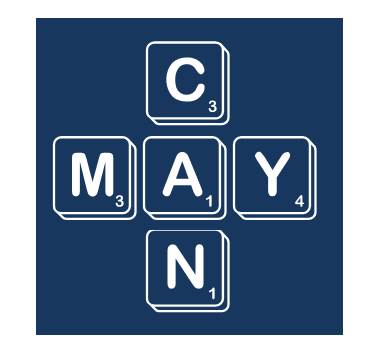 My nearly-three-year-old grandson’s vocabulary is increasing in leaps and bounds, week by week, and it’s fascinating to hear him chatter away, incorporating his newly learnt words. Of course, being the good nonna that I am, he gets corrected, especially when he needs to learn to be polite with the pleases and thank yous. The current focus is when he says, ‘What?’
My nearly-three-year-old grandson’s vocabulary is increasing in leaps and bounds, week by week, and it’s fascinating to hear him chatter away, incorporating his newly learnt words. Of course, being the good nonna that I am, he gets corrected, especially when he needs to learn to be polite with the pleases and thank yous. The current focus is when he says, ‘What?’
‘Not what, Olly—pardon’. He then yells ‘Pardon’…or rather, ‘Pardun’ at the top of his little voice—I got the message, Nonna!
And of course, there will be more to teach him. The above are easy corrections and—hopefully—quickly learnt. Soon though, some careful explanation will be needed. His ‘Nonna, I need a snack’ is constantly corrected by me to ‘No, Olly, Nonna, please may I have a snack’. But he’s going to get confused in a while with a little issue that still causes a little perplexity amongst us adults…the ‘can or may’ problem.
‘Mum, please can I go to the cinema tonight?’ said Louise.
Well, yes, she is indeed physically able to get changed, catch a bus, buy her ticket, and sit in a comfortable seat for two and half hours, and then get herself home again. But what she really wants is Mum’s approval, and so she’s asking for permission. What she really meant was, ‘Mum, please may I go the cinema tonight?’
Formerly, ‘can’ was used to denote ‘ability’ (I can ride a bike, I can rollerskate, can you play poker?), whilst ‘may’ permission. However, these days ‘can’ and ‘may’ have become interchangeable for ‘permission’ when used informally. In formal/polite instances, if you are asking (or giving) permission, ‘may’ should be used. So, our cinema-going aficionado, Louise, above, wasn’t really wrong, and I’m betting that if it was a school night, Mum wouldn’t have been in the slightest bit interested in whether she had used ‘can’ or ‘may’. The answer would still have been no.
I digress. Despite the modern acceptance of the interchangeability, I do feel the difference between the two should be recognised.
So, in a nutshell:
If you are asking if you are allowed, or telling someone they are allowed, to do something, in formal circumstances or merely to be polite, then use ‘may’:
You may unfasten your seatbelts.
May I speak to the manager, please?
Both the above are likely to be used in formal situations, so ‘may’ is appropriate.
Of course, characters in novels do have to be formal and informal, on occasion, too, so I do hope they know the difference…if I may be so bold…

Well, I remember all too well the usual answers to those questions: “Of course you can, but you may not!” 😉
I’ve said the same to my kids. 🙂 But now I find myself using ‘can’ more. Grrrr.
Great post, Cathy. I did not know that ‘can’ is now acceptable in the informal setting. I do find myself using it and then ‘catching’ myself. It’s another example of how language keeps changing.
Yes, I can remember the lesson when I asked, “Can I leave the table, please.” The reply was, until I got the message, “You can but you may not.”
My mom never cared which one I used. 😀 But as writers, we need to know the difference. Thanks, Cathy!
Very nice post, Cathy. These differences may be small, but they might be important, too (said the nun to the vicar :))
Great post. My editor and I go round and round on this. But I feel “can” is perfect for a less formal (or less educated person) situation. Where I want readers to feel that my character is educated, I use “may.” Slowly my editor and I are getting on the same wavelength.
I was corrected by my beloved not long ago when I asked ‘can I open the window?’ but it turned out I had been right all long. It was too high for me and I couldn’t open it, permission or not. 😉 Great post, I love regular reminders of these basics.
I love the discernments of the English language; sadly, as far as I’m concerned, the spoken English language is changing, quickly to something less subtle.
Nice post, Cathy.
This post made me smile, Cathy. 🙂 The difference between ‘can’ and ‘may’ was drummed into my head a very long time ago, and I still get a crunchy feeling when the two are misused. Unfortunately we may be the last generation to care about the distinction.
Speaking of ‘may’, another pet peeve of mine is when authors use ‘may’ instead of ‘might’. Nit picky, I know, but tense is important!
I really liked this article. I work with middle and high school students, and there are two things I constantly hound them with. The “may” and “can” is one of the two things. Whenever they ask if they “can go to the library to check out a book,” for example, I reply, “I don’t know. Have you done it before? Is there a reason why it isn’t possible to do it again? Did something change so that it isn’t possible?” I love coming up with new questions, and I rattle them off immediately with a deadpan expression. It doesn’t take long for them to catch on. Now my sixth-graders catch each other!
Great article, Cathy. I’m surprised, as I was brought up by an English mother, that she wasn’t a stickler for this. Now, if I can only get my husband not to say, “I should have went there.” Ack!